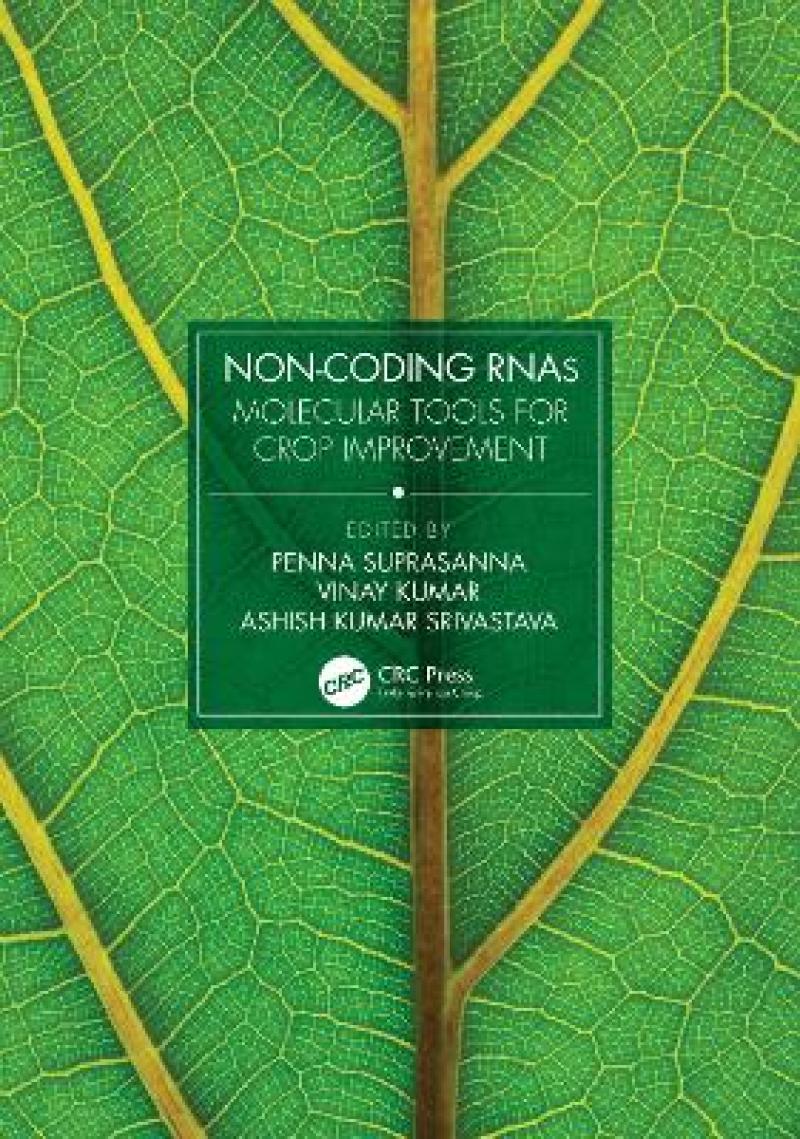This reference book compiles updated research on non-coding RNAs and their role in producing high-yielding plants with higher productivity under changing climates. Plant non-coding RNAs are emerging as the key regulators of plant responses to climate change and environmental stresses. The book covers the sequencing, identification, prediction, identification, characterization, and targets of non-coding RNAs to engineer high-yielding crops. It also includes in silico tools and databases to study them.
Key features:
- Discusses the different types of non-coding RNAs including lnc-RNAs, siRNA, microRNAs, and tasiRNAs
- Covers the role of plant non-coding RNAs in epigenetic regulation of environmental stress response and tolerance
- Reviews the role of non-coding RNAs under environmental stresses like drought, water logging, salinity, extreme temperature, UV, heavy metals, and xenobiotics
- Explores the use of non-coding RNAs in transgenic crops and genome editing
- Describes the biogenesis, history, and classification of non-coding RNAs in plants
The book provides a mix of basic and advanced information for postgraduate students, researchers, and scientists in the fields of plant molecular biology, biotechnology, food security, and agriculture.
This reference book compiles updated research on non-coding RNAs and their role in producing high-yielding plants with no penalties under changing climates. The book covers the sequencing, identification, prediction, identification, characterization, and targets of non-coding RNAs to engineer high-yielding crops.
Chapter 1: Small RNAs in Plants: Are These Magic Bullets for Imparting Climate Resilience in Crops?
Chapter 2: Regulatory role(s) of plant small non-coding RNAs in relation to trait improvement in crops
Chapter 3: Plant Non-Coding miRNA and Their Importance in Plants Physiology
Chapter 4: miRNA regulated transcription factor networks in response to osmotic stress
Chapter 5: MicroRNA-mediated strategies for conferring biotic stress tolerance in plants
Chapter 6: Identification and Characterization of Plant ncRNA Responsive to Climate Change
Chapter 7: Plant Non-Coding RNAs and their Regulation in Salinity and Heavy Metal Stress
Chapter 8: Ionizing Radiation Induced Non-coding RNA in plants and their Implication in Mutation Breeding
Chapter 9: Role of Noncoding RNAs in Abiotic Stress Response & Adaptation in Chickpea
Chapter 10: Plant Functional Long Non-Coding RNAs: Yesterday’s dark matter, today’s regulatory component for abiotic stress response
Chapter 11: Machine learning approaches for long non-coding RNA identification in plants
Index
Produktdetaljer
Biografisk notat
Dr. Penna Suprasanna is a Professor & Director, Amity Centre for Nuclear Biotechnology, Amity University, Mumbai, Maharashtra, India. He is the Former-Head of the Nuclear Agriculture & Biotechnology Division, Bhabha Atomic Research Centre, Mumbai. His research interests are agricultural biotechnology, climate-smart agriculture, molecular plant stress physiology, and nuclear agriculture. He has served as an expert with International Atomic Energy Agency (IAEA), Vienna (Austria) and Member, Food Security Committee, Board of Research in Nuclear Sciences, DAE. He has more than 360 research publications to his credit and has edited books on Plant Nutrition and Food Security, Plant metal interactions, Stress tolerance and mutation breeding.
Dr. Vinay Kumar is an Associate Professor at the Department of Biotechnology, P.E.S. Modern College of Arts, Science and Commerce, Savitribai Phule Pune University, Ganeshkhind, Pune, India. His research interests are plant-environment interactions, environmental stress biology, crop biotechnology, environmental biotechnology, antimicrobial resistance, nanotechnology, and natural products. He has published more than 75 research articles and 7 published books to his credit.
Dr. Ashish Kumar Srivastava is a Scientific Officer ‘G’ at the Nuclear Agriculture and Biotechnology Division, Bhabha Atomic Research Centre, Mumbai, India. He completed his Ph.D. from Homi Bhabha National Institute, Department of Atomic Energy, Mumbai, India. His research work is focused on understanding the molecular mechanism of abiotic stress tolerance in crops. So far, he has published 65 research articles and edited 2 books.
